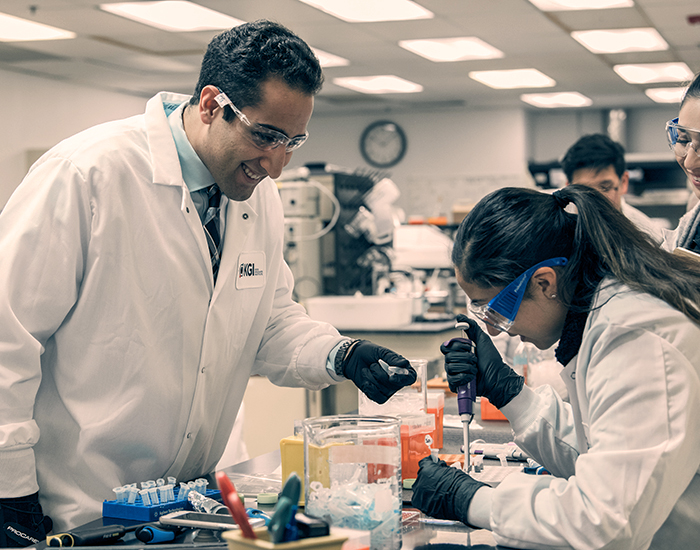Biotechnology and biomedical engineering is a highly technical career path. A bachelor’s degree in a life sciences concentration is often considered to be the minimum requirement for entry-level positions. However, most employers actively recruit or hire professionals who possess an advanced biotech engineering degree. A bachelor’s degree in biology or another life sciences field may be necessary to get your foot in the door, but most companies focus their recruitment on applicants who hold master’s degrees from accredited biotech engineering programs.
To become a biotech engineer, assess your background knowledge and qualifications. Then, investigate the biotech engineering specialties that most interest you. Finally, apply to an accredited master’s degree program to acquire the skills and educational experience that employers most want to see in their applicants.
Most Valuable Skills for Biotech Engineers
Biotech engineering encompasses a large subset of life sciences industries. Biotech engineers may work in medical equipment manufacturing, pharmaceutical and medicine manufacturing, research and development, education, and many other areas where their scientific know-how is required.
Employers seek biotech and biomedical engineers who possess a specialized set of hard skills or proficiencies, which often include:
- Proficiency with conceptual design using CAD design software
- Laboratory skills, to include mechanical testing, failure analysis, and component inspection
- Understanding of relevant biomedical FDA regulations
- Knowledge of manufacturing methods, such as injection molding, casting, machining, or extrusion
- Programming or coding experience
- Higher-level mathematical knowledge
Technical skills requirements may vary by employer and industry. However, most of the in-demand hard skills for biotech engineers are obtained either through on-the-job training with a bachelor’s degree in engineering or through an advanced biotech engineering degree program.
Hard skills are not the only proficiency employers seek for biotech and biomedical engineers. You’ll often be tasked with working in a team, working alone, or communicating with clients.
Critical soft skills necessary for success in this career may include:
- Excellent written and oral communication
- Problem-solving skills
- Critical thinking
- Creativity
- Research skills
- Ability to work in a team or group setting
- Leadership skills
When applying for careers as a biotech engineer, you’ll need to be able to effectively display these core hard and soft skills in your resume/CV, cover letter, and during job interviews.
Career Paths for a Biotech Engineer
Demand for biotech engineers crosses over into many life sciences industries. The following careers are among the many possible paths for individuals who hold degrees in biotech or biomedical engineering:
- Bioprocess engineer
- Biomedical engineer
- Biotechnologist
- Materials scientist
- CQV (Commissioning, Qualification, and Validation) engineer
Jobs are also available for professionals interested in scientific research, especially in the pharmaceutical industry.
Earn a Master’s Degree in Biotech Engineering
KGI has two master’s degree programs available at KGI that will help not only help you learn the skills you need, but will help catapult your application to the top of the list.
Most of KGI’s accredited programs specialize in advanced life sciences education.
Find yourself passionate about developing equipment that will positively impact lives? Consider a Master of Science in Medical Device Engineering (MSMDE) degree.
Want to work at the forefront of the pharmaceutical industry and aid in the development of life-saving drugs? KGI offers a highly respected Master of Engineering in Biopharmaceutical Processing (MEng) degree.
Both degree programs prepare you to take on complex engineering challenges that exist in the biotech and biomedical industries. The curriculum in these two-year programs delivers coursework in Medical Devices and Medical Device Production, Product Development, US Food and Drug Law, Ethics, Molecular Basis of Disease, Bioprocessing Fundamentals, and much more.
Acquire the technical and business skills you need, work individually and in teams to accomplish goals, and then transform that learning into success within the biotech and biomedical industry.
Contact KGI today to learn more about our MSMDE and MEng programs, including application requirements and tuition assistance options.
